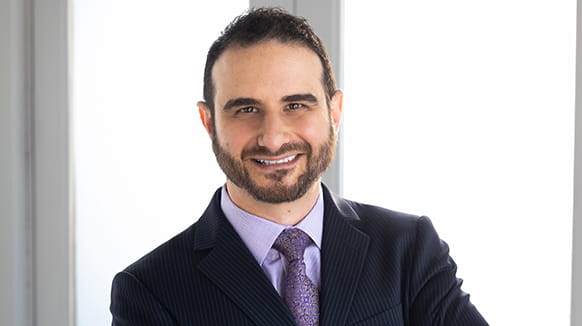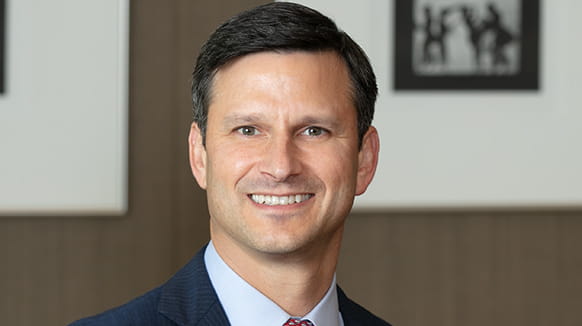On Sunday, December 27, 2020, President Trump signed into law a COVID-19 relief and government spending bill entitled the “Consolidated Appropriations Act, 2021.” Within its nearly 5,600 pages are significant new trademark and copyright provisions unrelated to either the coronavirus or the funding of the government. For trademark owners, the legislation incorporates the Trademark Modernization Act of 2020, H.R. 6196, likely the most significant trademark legislation since the Lanham Act’s enactment nearly 75 years ago. It will change trademark practice in several ways, including: (i) providing a statutory rebuttable presumption of irreparable harm to benefit brand owners in trademark litigation; and (ii) creating new expungement and reexamination proceedings before the United States Patent and Trademark Office (USPTO) to more efficiently remove unused marks from the registry.
For copyright owners, the legislation creates a new “Copyright Claims Board” within the United States Copyright Office to adjudicate certain “small-claims” copyright disputes rather than trying them in the courts. It also increases criminal penalties for illegally streaming content, making certain streaming of copyrighted content for profit a felony punishable by up to 10 years of imprisonment.
PRESUMPTION OF IRREPARABLE HARM IN TRADEMARK CASES
Effective immediately, the Act resolves a circuit split as to the standard for issuing an injunction in trademark infringement, cybersquatting, and false advertising cases brought under the Lanham Act. The legislation now confirms that the trademark owner is entitled to a rebuttable presumption of irreparable harm when either (i) a Lanham Act violation is found, or (ii) it has shown a likelihood of success of prevailing on its claims in either a motion for a preliminary injunction or temporary restraining order. This lowers the bar for obtaining an injunction in the Third, Ninth, and Eleventh Circuits, each of which had rejected the common law rebuttable presumption of irreparable harm in trademark suits in light of a 2006 U.S. Supreme Court opinion in a patent case, eBay v. MercExchange, LLC, 547 U.S. 388 (2006).
ADDRESSING THE CHALLENGE OF TRADEMARK DEPLETION
Additionally, the legislation creates new ex parte procedures for removing trademark registrations of marks that were not used in U.S. commerce. The primary goal for these measures is to counter the concern of trademark depletion by enabling fraudulent trademark filings and “deadwood” to be cleared from the USPTO register, and we expect them to be cheaper and faster than the current cancellation proceeding option. They will not be available, however, until December 27, 2021. Between now and then, the USPTO is required to promulgate implementing regulations.
Expungement proceedings. Parties will be able to institute ex parte expungement proceedings before the USPTO alleging that a registered mark has never been used in connection with some or all of the goods and services listed in the registration. Either a party can file a petition for expungement, or the Director of the USPTO can institute a proceeding for expungement on its own initiative.
To be vulnerable to expungement, registrations must be at least 3 years old, but not more than 10 years old. However, for the first 2 years after December 27, 2021 when the first expungement proceedings can be commenced, the 10 year old limitation does not apply such that no registration is too old to be expunged.
Reexamination proceedings. Parties will also be able to institute reexamination proceedings alleging that a registered mark was not in use at the time of its application filing date for applications based on use, or at the time of its Allegation of Use filing date for applications based on intent to use. As with the expungement option, either a party can file a petition for reexamination or the Director can independently institute a proceeding.
A registration challenged through the new reexamination proceeding must be no more than 5 years old.
CHANGES TO COPYRIGHT LAW: THE CASE ACT AND FELONY STREAMING
In addition to its considerable impact on trademark law, the legislation also significantly changes U.S. copyright law by creating a “small-claims” tribunal for smaller copyright disputes and by making illegal streaming a felony in some cases.
Small-claims tribunal. Of greatest significance, the new law includes the Copyright Alternative in Small-Claims Enforcement (CASE) Act, a piece of legislation several years in the making. It provides for the creation of a “Copyright Claims Board,” a small-claims tribunal within the U.S. Copyright Office tasked with adjudicating smaller-scale claims of copyright infringement.
Under the CASE Act, copyright disputes may be referred to the new Copyright Claims Board unless an accused infringer opts out. Such disputes would be heard by a three-person panel comprised of copyright experts, known as “claims officers,” rather than judges or juries. Awards for infringement for cases heard by a Copyright Claims Board panel would be capped at $15,000 per infringed work (as opposed to the current statutory limit of $150,000 per work), and $30,000 total for all of the works infringed.
Proponents of the CASE Act say that the creation of an independent, “small-claims” tribunal will create an affordable, efficient process for copyright owners to enforce their rights, providing content owners an effective remedy for small-scale infringement that does not require hiring a lawyer or pursuing a copyright infringement suit in federal court. By creating a streamlined, lower-cost method of settling low-dollar infringement claims, content owners may be better able to enforce their copyrights when they might not otherwise have the means or resources to do so.
The CASE Act is not without its critics, however. Opponents of the legislation, including the American Civil Liberties Union and the Electronic Frontier Foundation, argue that the CASE Act will make it easier for sophisticated copyright owners and their attorneys to engage in profiteering or abusive practices to the detriment of everyday internet users. Critics have also raised doubts as to the constitutionality of creating a quasi-judicial tribunal within the Copyright Office, which is part of the legislative branch.
Felonious streaming. In addition to the CASE Act, the COVID-19 omnibus relief act also contains the Protecting Lawful Streaming Act (PLSA). This legislation ratchets up penalties for illegal streaming of copyrighted works. Currently a misdemeanor, the PLSA makes illegally streaming of copyrighted material for profit a felony punishable by up to 10 years of imprisonment. In a statement, Senator Thom Tillis argued that the PLSA was necessary because “[t]he shift toward streaming content online has resulted in criminal streaming services illegally distributing copyrighted material that costs the U.S. economy nearly $30 billion every year and discourages the production of creative content.” The act is ostensibly tailored only to apply to “commercial, for-profit streaming piracy services,” and proponents of the measure have made clear that the relevant provisions are not intended to target individual streamers. Nevertheless, critics are skeptical of the need for such legislation and argue that the increased penalties could have a chilling effect on everyday internet users.
For additional resources and information regarding the COVID-19 relief act, see the Haynes Boone alert available here. If you have additional questions about the intellectual property implications of the legislation, please contact any of the Haynes Boone attorneys listed below.


